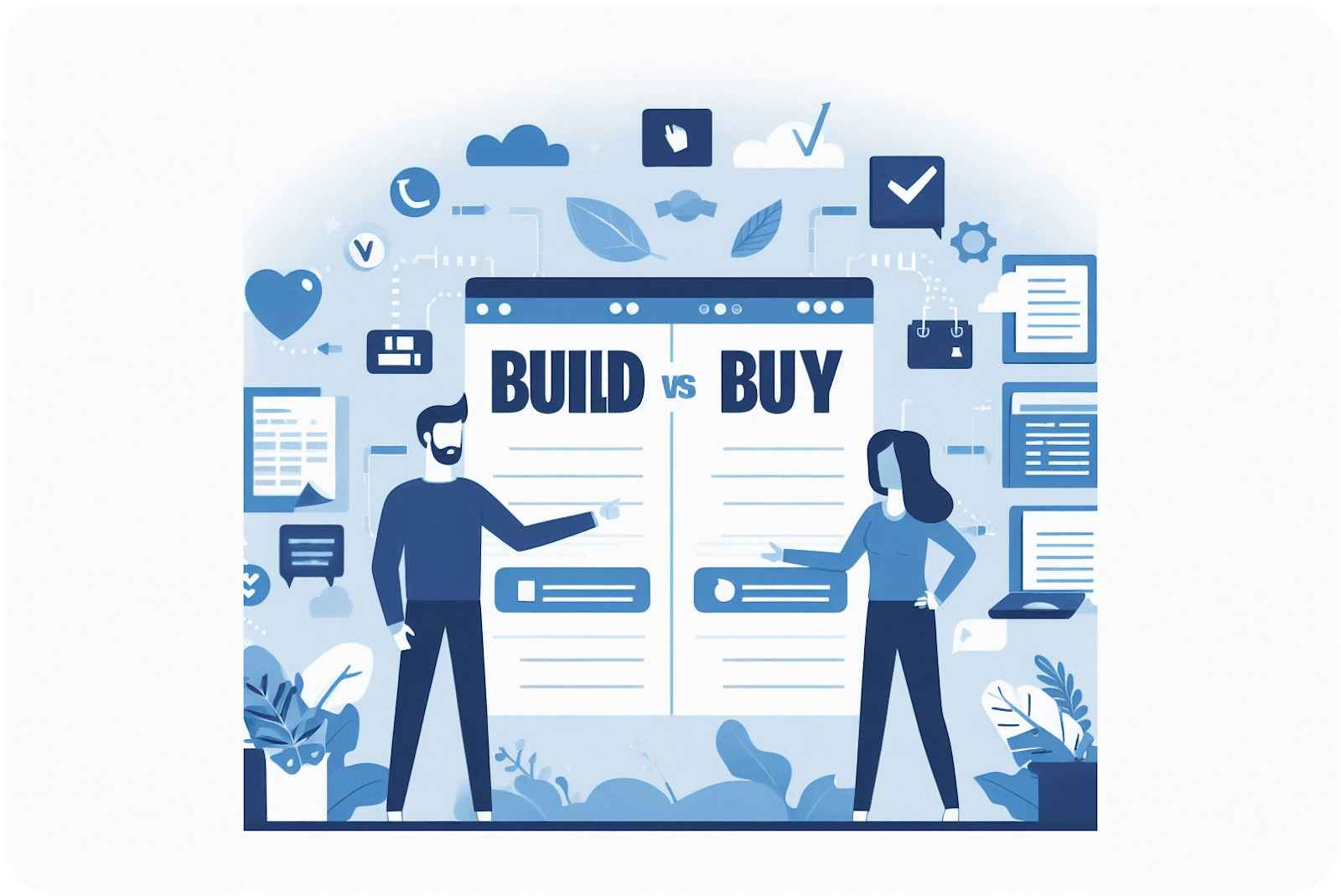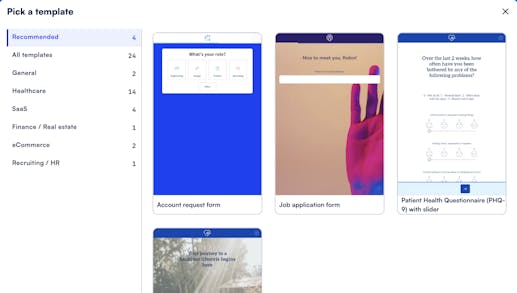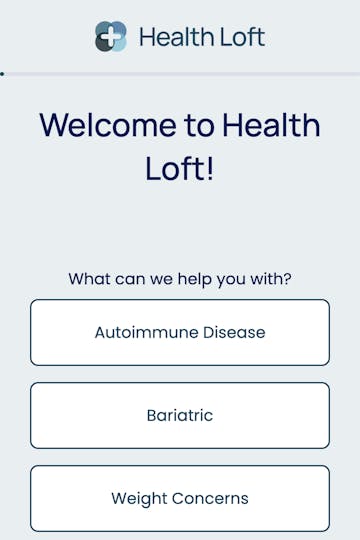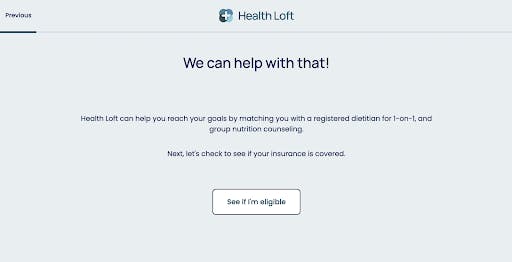Build vs buy HIPAA-compliant form builders

How to build a HIPAA-compliant form in 2024
Form builders can be great assets for patient registration and onboarding, health assessment, surveys, appointment scheduling, symptom tracking and monitoring, customized care plans, and many other ways.
Many considerations come into play when determining the most suitable solution for a digital health product. Let's start from the beginning and walk you through these considerations.
What is a form builder
In the realm of software interaction, a web form becomes imperative when engaging with individuals. Its purpose is to provide the most seamless and user-friendly means to collect vital data, thus enabling the delivery of a top-tier service.
Companies have the ability to create forms for their products or websites through two distinct approaches: utilizing a form builder or developing from scratch. Notably, web forms have undergone significant enhancements, making them more intuitive, swift, and readily available. This evolution greatly expedites form-building, providing developers with powerful tools to enhance user interaction and data collection.
Benefits of introducing digital forms in healthcare
Transitioning to digital forms in healthcare processes enhances efficiency by reducing paperwork, ensuring accurate data entry, and facilitating seamless communication among healthcare professionals. This shift improves patient care through quick access to precise medical records and promotes environmental sustainability by decreasing paper usage.
So, to make it simple, form builders are valuable tools when developing digital health products for various reasons:
- They help streamline data collection.
- Enhance the user experience.
- Boost accessibility to care.
- Ensure accurate and structured information gathering.
- Reduces the need for software developers to alter the form.
A crucial feature to scale in healthcare: HIPAA compliance
Form builders in healthcare must be HIPAA compliant to ensure the secure handling of sensitive patient information and PHI (Protected/Personal Health Information). The Health Insurance Portability and Accountability Act (HIPAA) establishes strict standards for protecting patient data in the healthcare industry. HIPAA compliance in form builders guarantees that patient information, including medical records and personal details, is encrypted, stored, and transmitted securely. This compliance helps healthcare providers and organizations avoid legal repercussions, maintain patient trust, and uphold the confidentiality and integrity of sensitive health data. Healthcare professionals can confidently collect and manage patient information using HIPAA-compliant form builders while adhering to the highest data security and privacy standards.
Now, the question is… should I build the form from scratch or use a customizable form builder? Let's dive deep into analyzing both alternatives' pros and cons.
The debate: Buy versus build a form
When it comes to the decision of whether to build or buy a HIPAA-compliant form builder, several critical factors come into play. These factors encompass your organization's resources, expertise, timeline, and specific needs.
Here's an in-depth analysis to guide your decision-making process and offer a comprehensive understanding of the costs and advantages associated with two approaches: creating web forms from scratch versus adopting a vendor-provided solution.
BUY
Pros of buying a form builder
- Time: Buying an existing solution can lead to faster deployment, allowing you to focus on your core business activities.
- Expertise included: Vendors such as Formsort can do it all for you. There's no need to invest time to learn the ins and outs of developing forms and keep up to date with changes.
- Security: Established vendors often have robust security measures, reducing your risk. Signing a BAA minimizes your liabilities.
- Predictable Costs: Upfront costs and ongoing subscription fees provide predictable budgeting.
- Support and Updates: Vendors such as Formsort provide support, updates, and improvements to ensure compliance and functionality.
- Reduced Development Effort: By purchasing a solution, you eliminate the need to allocate internal resources for building, testing, maintaining, and making small changes to the form content itself!

Cons of buying a form builder
- Limited Customization: Off-the-shelf solutions may not perfectly match your unique requirements.
- Vendor Lock-in: You depend on the vendor's ability to maintain compliance, security, and support.
- Integration Challenges: Integrating a third-party solution may require additional effort and potential technical challenges.
- Costs: Subscription costs might be too high depending on your solution and use case.
Build
Pros of building a custom form
- Customization: Building your solution allows you to tailor it precisely to your organization's requirements.
- Control: You have full control over the development process, security measures, and updates.
- Cost Control: While initial costs can be higher, long-term maintenance and licensing fees may be lower.
- Integration: You can seamlessly integrate the form with your existing systems and workflows.
Cons of building a custom form
- Time-Consuming: Building a custom solution and making changes takes time and effort, potentially delaying the deployment.
- Expertise Required: You need a skilled development team with HIPAA compliance, security, and software development expertise.
- Costs: Initial development costs can be higher due to development time, resource allocation, and potential learning curves. There will also be switching costs associated with having your engineering team working on making changes.
- Ongoing Maintenance: You will need a specialized developer responsible for maintaining security, updates, bug fixes, and compliance, which takes time and money.
Comparing the pros and cons of both options
Building an in-house solution provides unmatched customization and control but demands significant investment and ongoing maintenance.
Conversely, buying a form solution like Formsort sounds more straightforward to implement to most developers, and in its simplest version, it frequently is. Running your own form solution is typically significantly less cost-effective than engaging a reputable vendor, especially considering time and support expenses. Purchasing a pre-built form builder offers rapid deployment and vendor expertise while potentially limiting customization and incurring recurring costs.
Health Loft case study
Our discussion of the benefits of building vs buying has been thoroughly explored in this article. Now, let's examine the deliberate decision made by Health Loft, a healthcare company, to use a HIPAA-compliant form builder. Health Loft serves as a compelling example of a situation where, considering all variables, opting for a pre-existing form builder proved to be the most pragmatic choice. The company sought the flexibility to implement changes autonomously, minimizing the need for external development work in the future. Light-it played a crucial role in assisting Health Loft in successfully launching Formsort and executing additional integrations.
What is Health Loft?
Health Loft provides individualized telehealth sessions with certified dietitians to assist people of all ages and conditions with managing and achieving their nutritional health goals. Through its app, users can schedule an appointment with registered dietitians nationwide in the US while using their insurance.
What did Light-it do?
Using Formsort, a HIPAA-compliant form builder, the Light-it team developed a comprehensive form automating various processes critical to the company's core operations, ranging from new user signups to appointment bookings.
Furthermore, the system ensures real-time registration of all pertinent data, including conversions, new user information, and appointment details, directly into their Electronic Health Record (EHR).
Light-it enhanced the platform's capabilities by utilizing Formsort’s custom question capabilities for functionalities not supported out of the box. This development enabled the inclusion of a scheduling tool: Health Loft's users can seamlessly view the availability of different nutritional professionals within the app and schedule appointments.
It also integrates with a CRM that allows launching triggers to boost conversion if the user does not continue the flow. It also integrates with Google Tag Manager to measure and receive statistics and understand the performance and workflow of the purchase process.
Among the many valuable features of Formsort, our technical team highlighted that it allows our client team to add or remove steps on the forms workflow and customize texts self-sufficiently. This is key when companies don't have technological staff in their teams.
Another aspect that was appreciated was the ease of integrating Formsort with a variety of external platforms. With these integrations, Health Loft’s app can be connected to their different business apps and send analytics events, send answers (form submissions) to databases and CRMs, and trigger marketing automations.
This solution eliminated the burden on the Health Loft’s employees who manually managed this process. Today, there’s no need to attend to multiple monotonous tasks manually. In this way, Health Loft was able to save resources, time, and money and make the processes more seamless.

The form workflow is super intuitive!

You can easily navigate through the questionnaire on both mobile and desktop
Final insights
The decision should be based on a thorough assessment. Ultimately, the choice depends on the organization's budget, timeline, required features, and technical expertise. For most healthcare providers, especially smaller ones, buying a pre-built, HIPAA-compliant form builder is often the more practical and efficient choice. It allows them to focus on patient care while relying on established, secure technology. However, building a custom form builder could be viable for large institutions with specific, intricate needs and the resources to support in-house development.
At Light-it, we help digital health startups, clinics, and medtech companies ideate, design, and develop custom web & mobile applications that transform the future of healthcare. We recognize the complexity of deciding between build vs. buy decisions. Our experienced team is ready to collaborate with your organization; whether you build a custom solution or choose Formsort, a web form builder we have demonstrated to have great potential.
Contact Light-it to explore the best path for your organization.
